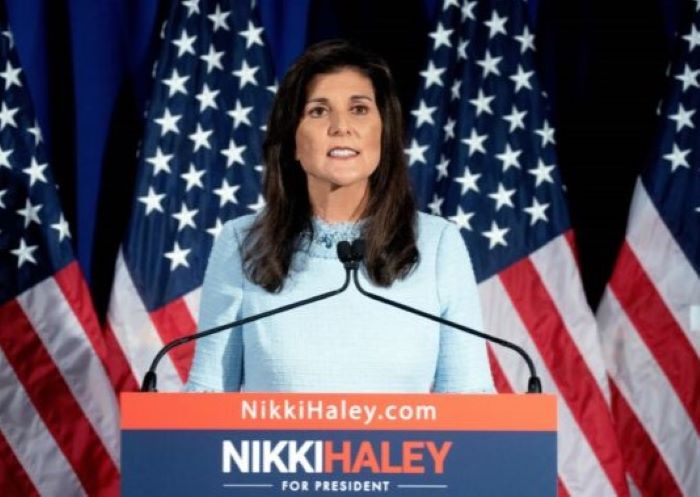In a dramatic turn of events, Nikki Haley, reeling from a disappointing defeat in New Hampshire, returned to her home state of South Carolina, determined to face off against Donald J. Trump for the Republican nomination. Speaking passionately to a boisterous crowd in North Charleston, Haley dismissed calls from political elites to concede. She emphasized that only two states had cast their votes, leaving 48 more to go.
Home Turf, Not Friendly Territory
Despite South Carolina holding personal significance for Haley—having served two terms as governor and later as Mr. Trump’s first ambassador to the United Nations—the political terrain proved challenging. Resistance mounted from Republicans at various levels, including local party officials and the chairwoman of the Republican National Committee, who urged Haley to step aside. The Trump campaign seized the moment, publicizing a fresh wave of endorsements from influential figures in the state.
Allies Defend, Doubts Increase
According to a Wall Street Journal report, while Haley’s allies insisted that she had met her expectations by narrowing the field and positioning herself for a two-person contest leading to the primary on Feb. 24, doubts about her viability gained traction. Pressure intensified for her withdrawal, with concerns about potentially angering Trump and his supporters.
Strategizing for Survival
Mark Harris, chief strategist for Haley’s super PAC, acknowledged the imperative to expand support state by state, according to a New York Times report. The focus was on South Carolina as the next critical battleground. Despite accumulating 17 Republican delegates, doubts lingered about Haley’s ability to secure the nomination, especially in the face of Trump’s increasing consolidation of support.
A Looming Brutal Campaign
The Trump campaign hinted at a brutal campaign, with personal attacks and insinuations about Haley’s integrity. Online influencers associated with Trump escalated their attacks on Haley, utilizing misogynistic content. In response, Haley intensified her own criticism, challenging Trump to a debate and questioning his mental faculties, age, and courage.
Undeterred and Campaigning
Undeterred by the challenges, Haley continued her campaign efforts. She delivered her standard stump speech via Zoom to the Republican Party of the U.S. Virgin Islands, where caucuses are scheduled for Feb. 8. Advertisements highlighting her record were broadcast in South Carolina, countering the narrative set by Trump.
Internal Divisions and Clinging to Hope
As the campaign faced an uphill battle, internal divisions emerged among Haley’s backers. Some donors remained committed, believing in Haley’s unique position to draw support from both sides of the political spectrum. Despite the growing support for Trump, Haley’s underdog campaign clung to hope. Fundraising events were planned in major cities, including New York City and Houston. The unfolding narrative highlighted the intense competition for the Republican nomination and the challenges facing a candidate challenging the influence of a formidable figure like Donald J. Trump.

